Gender Equality National Report Hungary - European-microfinance ...
Gender Equality National Report Hungary - European-microfinance ...
Gender Equality National Report Hungary - European-microfinance ...
Create successful ePaper yourself
Turn your PDF publications into a flip-book with our unique Google optimized e-Paper software.
Since 2000 the Family-friendly Work-place Award 11 has been given to work-places that<br />
give accentuated priority to the respect of family duties.<br />
It has proved that such work management effectively increases the competitiveness of the<br />
firm while it is also advantageous to staff with families. The motivation, satisfaction and work<br />
efficiency of the staff are enhanced unambiguously by a management practice that<br />
harmonizes the interests of work and family. It results in reducing stress, fluctuation or the<br />
time of absence from work for health reasons. Thus it is possible to keep highly qualified,<br />
obliged staff and to increase efficiency and creativity in the long run, which means profit for<br />
any company with long-term objectives.<br />
The application includes issues like the proportion of women in management, how many men<br />
and women participate in training whether there are measures specifically aimed at<br />
enhancing men’s family obligations, whether events organized at work or other perks are<br />
open to family members as well, or whether the work-place supports those who return from<br />
maternity leave. In view of labour it is important to offer the opportunity of part time jobs or<br />
tele-work, to create compulsory working hours and possible working hours and to have a<br />
collective agreement and training aimed at enhancing competitiveness preferably organized<br />
within working hours. From a social viewpoint we must welcome benefits that increase the<br />
social security of employees (family starting and maternity support, school starting support,<br />
contributions to pension schemes etc.), or health protection (medical tests, passes to<br />
swimming pools, recreational support etc.) or supplementary services like alternative<br />
daycare, support of children’s institutes. 51 applications were assessed in 2007. The awards<br />
were given in the categories of small, medium-sized and large companies as well as bodies<br />
of state administration.<br />
<strong>Gender</strong> equality on the basis of the report by the World Economic Forum 12 -<br />
international comparison<br />
In the "<strong>Gender</strong> Gap Index" report of the World Economic Forum in 2006, <strong>Hungary</strong> took<br />
position 55 among the examined 115 countries. The "<strong>Gender</strong> Gap Index" examines the<br />
extent of equal chances for men and women in four major fields: economic participation,<br />
educational attainment, institutional influence on political life and finally health and general<br />
life expectancy. The final ranking of countries is formed by these indexes.<br />
The index of the world organization measures women’s equality with men in the following<br />
four categories:<br />
- economic participation and opportunities (gender partition of employees, partition of wages,<br />
estimated income per gender, decision-makers, officials, gender partition of managers,<br />
gender partition of skilled workers)<br />
- qualification, education outcomes (literacy, students at different levels of the education<br />
system)<br />
- health and survival (life expectancy at birth, sex ratio at birth),<br />
- participation in political decision-making (members of parliament, ministry officials, state<br />
leaders).<br />
Apart from the old EU member states <strong>Hungary</strong> is preceded by all the other Central Eastern<br />
<strong>European</strong> countries and a number of Asian and African countries as well.<br />
The sub-indexes show a colourful picture:<br />
11 www.szmm.gov.hu<br />
12 Global <strong>Gender</strong> Gap <strong>Report</strong> 2006 – World Economic Forum Geneva, Switzerland 2006<br />
34



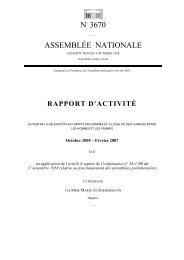
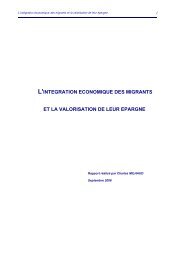
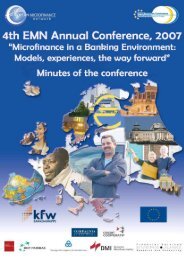
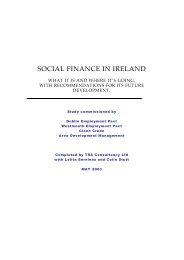
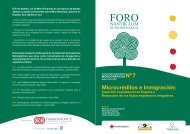
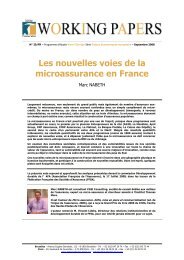
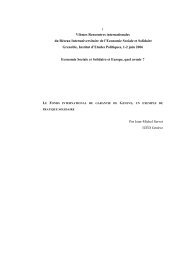
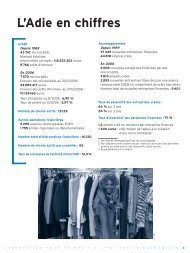
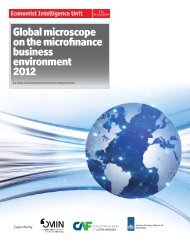
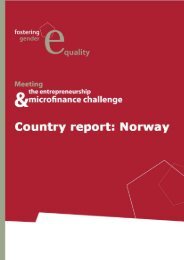
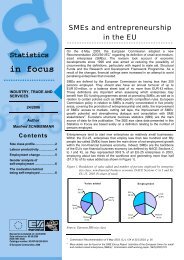
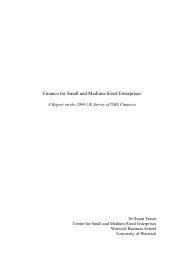
![Joint Report on Social Protection and Social Inclusion [2005]](https://img.yumpu.com/19580638/1/190x132/joint-report-on-social-protection-and-social-inclusion-2005.jpg?quality=85)
